- Home
- Terry C. Johnston
Wind Walker tb-9 Page 2
Wind Walker tb-9 Read online
Page 2
After those Saints delivered the half-dead old trapper to the gates of the traders’ stockade, Titus hurriedly delivered the terrible news of the Pueblo revolt. Wringing their hands in anger and frustration, the former mountain men argued over what to do. Although there weren’t near enough of the old trappers to beat back the hordes of Mexicans and Pueblos on a rampage, the Americans nonetheless voted to start south immediately—if only to be close enough to keep an eye on the village of Taos and be ready when the army’s dragoons marched up from Santa Fe to put an end to the riot and murder. But before their ragtag band marched out south early the following morning, they sent one of their own to carry word of the uprising and brutal murder of the American governor himself to Bents’ Fort on down the Arkansas River.
Wasn’t a man there in that cold, hushed, dimly lit room at the Pueblo where Titus had told his story could argue that William Bent didn’t deserve to know how his older brother, Charles, had been hacked apart by the Taos mob—just as fast as a runner could get a horse on down the Arkansas to that big adobe fort with the news.
Louy Simmons volunteered to make that ride east while the rest turned their faces south for the valley of the San Fernandez and that tiny village of Taos where the icy streets had run red with the blood of Americans. Although weary and weak from his ordeal in bringing the horrible news, Titus turned right around and started south, leading Mathew Kinkead and the others who were setting off to right a terrible wrong. With his family and old friends hiding out among the hills above Taos, he could do no less. Then somewhere along that trail, in those long, cold days spent racing back to his family, Bass had decided against joining in the retribution. Not that the Mexicans and Indians didn’t have a judgment day coming—be it a dragoons’ firing squad or a long drop at the end of a short rope noose tied by the hands of those American mountain men.
But this simply was not his fight.
By the time he had watched his half-blood children lunging toward him through the knee-deep snow, Titus Bass knew he would start his family north for the country where life was his fight. The others, like old friend Josiah Paddock—they had a decided stake in this land where the American army had come to conquer the Mexicans, this land where those chosen Saints of God had migrated to wrest their promised land from an unforgiving wilderness. As soon as he finally held his Crow wife tightly in his arms, rejoicing at their reunion, Titus realized if he did little else, he had to get his family far enough north that they would be in country the white man did not want. Only then would they be safe from those dangers he did not begin to understand.
Some dangers he could comprehend: the hatred between the Crow and their ancient adversaries to the north and east. Dangers such as the great white bears that could tear a man apart in heartbeats, or beasts that broke your leg so you could not move and slowly froze to death—those were the challenges and risks a man could fathom. They were a part of the life he had endured for more than two decades already. Such were the dangers that he reveled in, the very risks he had come west to conquer. Titus Bass could understand those challenges that had been an integral, and daily, part of his life for so long. But he did not care to make sense of armies coming to take away an old way of life from the Mexicans and Pueblo Indians, nor did he make sense of those Mexicans and Pueblos who staged a bloody revolt to drive out all those who were different. But what made him seek to hurry his family north even faster was his inability to make sense of those religious zealots who had come to the mountains to make a place only for their chosen few.
Ever since he had arrived here back in ’25, this had always been a land where a man celebrated his freedom to do and be … but now there were armies and emigrants, murderers and zealots come to change the face of this wilderness, come to change the very nature of what had belonged to only the daring few for so long.
Putting the San Fernandez Valley at their backs, Titus and his family struck out for the snowy pass, then started down, angling off to the northeast for the Picketwire.* Near its mouth, on the north bank of the Arkansas, Titus promised them they would find the mud-walled fort where the Bent brothers traded with the likes of the Kiowa, Arapaho, and Cheyenne. But they hadn’t escaped the foothills when they spotted those distant horsemen—dark figures crossing the crusty snow. Turning his family and their animals into a juniper-cloaked draw, Bass took his eldest son and together they worked their way to the edge of a rocky overhang.
Through the spyglass the figures appeared to move like white men, at least by the way they rode spread out rather than strung back in a long column like a war party would ride on the march. But who could tell for sure, what with those horsemen bundled under layers of winter clothing—wrapped in wool blanket coats or thick fur hides as their hang-down animals plodded for the foothills while the sun continued its fall. He and the boy would watch from here until the horsemen made camp for the coming night … then leaving his loved ones back in the safety of that ravine, Titus alone would slip up on the strangers.
First off to learn the color of their skin, and then to discover the purpose of their journey south toward that land of revolt and bloodshed.
Titus didn’t recognize a one of them.
Not that it was particularly easy for him to pick out a familiar face as the strangers hunkered around their fires, their faces obscured by furry hats or the hoods to their blanket coats, lit only with the flicker of low flames a dull red on the snow as they murmured to one another. He waited in the darkness, listening to a foreign tongue he knew was not Mexican, but a language he had heard plenty of during those years he languished in old St. Louis before striking out for the mountains. Some of these strangers were Frenchies, the laborers who had long played an important role in the fur trade across this wide, wild continent.
Silently he pushed back, sliding into the dark, and inched over closer to another fire, where he strained to listen to the quiet talk of those men rubbing frozen hands and warming icy feet near the flames. This bunch was Americans. Leastways, what he could hear of their few words.
Slowly rising to his feet, Bass called out, “Ho, the camp! I’m comin’ in! Don’t get no itchy fingers—this here’s a white nigger!”
At his first cry the men around those half-dozen fires leaped to their feet, some snatching up guns and preparing to make a fight of it, others ducking behind what cover there was in their baggage. The huge white dog leaped up, a deep, menacing growl rumbling at the back of its throat. In their midst a man of middling height stepped forth, longrifle in hand, yelling orders at the rest as he seized hold of the wide collar buckled around the big dog’s throat.
“Hold on there, you men!” he roared as he jerked the animal into a sitting position. “You heard him say he’s a white man.” Then he turned and flung his voice to that side of the camp where the shadow emerged from the brush at the base of the ridge. “How many are with you?”
Bass stopped and started to grin. With a shrug he held out his arms and replied, “Jus’ me. Ain’t no others.”
Lowering his smoothbore, the leader said, “C’mon over here.”
Less than two dozen men quickly surrounded Bass and the leader, who yanked the mitten off his right hand. “My name’s Bill Bransford.” The dog growled at the newcomer, so Bransford snapped, “Hush!” then peered at Bass. “We met before?”
“Not that I know of,” Titus said, stuffing his right hand under his left armpit and yanking off his thick blanket mitten. They shook. “My name’s Bass. Titus Bass.”
“I heard tell of you,” Bransford replied with a grin. “Sometime back, you was over to the big fort on the Arkansas with some other fellas and a big herd of horses you was sellin’.”
“You’re good at ’memberin’, Mr. Bransford.”
“Hell, I was a junior clerk back then. Brought my dog here out from St. Louis when I come to work at the fort years ago. So I well remember how you dickered on every last dollar for your horses, and ended up riding off with a couple of Charlotte’s puppies too.”
<
br /> The remembrance of those fat, furry pups made him smile as another man stepped up. “Your name’s Bass?”
Titus instantly turned on the speaker, intrigued at something naggingly familiar in the clip to the stranger’s words, and replied, “Titus Bass.”
“You’re the one I heard who’s called Scratch?”
“That’s right. And what be your name?”
“Lewis Garrard.”
“Ever you spend time on the Ohio River?”
“Born in Cincinnati,” Garrard responded with a grin. “How’d you know?”
“I come from the Ohio River country my own self,” Titus explained. “Boone County, Kentucky. Thort I heard the ring of that country in your words.”
“I’ve come west looking for a little adventure,” Garrard remarked.
He asked Garrard, “How you get hooked up with these pork-eaters?”
“I was with William Bent, trading out to the Big Timbers, when word of his brother’s death reached us.”
Bass looked at Bransford again, eyeing the man up and down. “Knowed Hudson’s Bay had Fort Hall across the mountains, but I didn’t think John Bull’s boys ever come this far south. How come Hudson’s Bay got hooked up with them Bent brothers?”
Bransford spoke up defensively, “We ain’t no Hudson’s Bay!”
“So you claim you ain’t a John Bull* outfit?” Titus inquired.
“No,” Bransford answered, looking mystified. “What made you think we was?”
“Laying out there in the dark, I was listening to them Frenchies palaver over yonder at that fire. Just figgered with them parley-voos along you was Hudson’s Bay.”
“William has him some Frenchmen working for him,” Bransford explained. “A few of ’em are hard workers. Like this bunch.”
“Where away you bound, headin’ south for the pass?” Titus asked. “You know there’s trouble south of here now.”
Garrard rubbed his hands together eagerly. “Just the sort of adventure I came west to find.”
Bransford motioned Bass to join them at the closest fire and said, “You’ll soon get all of the adventure you’re wanting, come the day we reach Taos, Garrard.”
“Taos?” Bass echoed in surprise. “So your bunch is headed for Taos?”
The leader turned on his heel and glared at Bass. “Sounds to me you know something of the bloodbath down that way.”
“I carried news of those doin’s all the way north to the Pueblo,” Titus declared sourly. “Kinkead and Fisher, the rest of ’em too, they set out with me the next day.”
“What are you doing up here if you returned to Taos?” Garrard asked.
“Decided it ain’t my fight.”
Garrard snorted. “Isn’t my fight either—but it’s bound to be one helluva time!”
Bransford leaned forward. “Why you wandering around out here by your lonesome?”
“Taking my family to Bents’ big lodge. Afore we push on north for Crow country.”
“Your family with you?” Garrard asked.
“That’s why I ain’t making that scrap in Taos my fight.” He pointed to the coffeepot at the edge of the fire pit. “You got something hot to drink?”
“Pour this cold man a cup,” Bransford ordered. “We’re on our way to Taos, maybeso to help the soldiers and those fellas from Fisher’s fort put down this revolt.”
Scratch watched the hot liquid hiss into a tin cup he held out, steam rising into the cold air. “Ain’t much any of you can do,” he explained quietly. “By now them murderers gone and butchered every white person in the area. They wiped out Turley’s mill.”
“Turley’s mill too?” one of the strangers repeated.
He nodded as he took a first sip of the hot coffee. “I’ll lay as how them greasers got their work done awready. No one left to save now.”
“William Bent wanted us to try,” Bransford declared.
“Bent hisself?” Bass echoed. “So Louy Simmons did make it after all.”
“Like Garrard told you,” Bransford nodded solemnly. “Simmons reached William when he was off trading at Big Timbers.”
Then Garrard spoke up. “I was right there with William, and old John Smith too—when Simmons came riding in with word that Charles was murdered.”
Titus turned back to Bransford and asked, “What’s this Big Timbers?”
“Place on the Arkansas—lots of cottonwoods—where William Bent’s wife’s folks, Cheyenne they be, where them Cheyenne camp out of the wind of a winter,” Bransford explained. “William rode right in the forty miles to the fort, ’thout stopping, soon as he heard tell of the revolt in Taos.”
He tucked the long, slender braid he wore in front of the left side of his face behind his ear and took another sip of the scalding coffee, then asked, “Bent’s gone an’ rode on ahead of you fellas?”
The leader shook his head. “Lord knows he wanted to—if only to find out ’bout his brother, how Charlie died. But when Frank De Lisle came in with the company wagons from the company camp on the Picketwire, sure as hell that a greaser army was right behind him—Captain Jackson and his soldiers convinced William he should stay put at the fort to protect it against an invading mob. Jackson’s got him a small company to begin with—and now there’s a score or better of his soldiers too sick to stand for service. There’s less’n a dozen able-bodied men to guard them walls now that we’re marching for Taos.”
“Protect the fort? Ain’t no greasers gonna come this far north,” Bass snorted and savored the warmth of the coffee tin between his hands. “How ’bout them Cheyennes he married into? Didn’t them Injuns at the Big Timbers offer to whoop it on south and wipe out them greasers what kill’t Charlie Bent?”
“Damn right, them chiefs volunteered their warriors to do just that,” Bransford explained. “But William turned ’em down cold. Told the Cheyennes it was a white man’s problem, and the white man’d put it right.”
“Maybeso that’s square thinkin’,” Bass said quietly. “White folks caused the problem in Mexico—it’s right that white folks should fix things down there.”
“So you’re going to find safety in Bents’ Fort?” Garrard asked.
“I been there, twice’t now,” Titus said, turning to address the man. “But, my woman and our young’uns never been. I figger chances be a mite slim I’ll ever make it back down this far south—so I decided to show ’em the fort while we’re this close.”
“You tell William you run onto us,” Bransford said. “He could well use another good man while the rest of us is away.”
Scratch peered over that motley collection of some two dozen former trappers, Frenchmen, half-bloods, and free men. “I ain’t looking for to hire out to no man. Figgered we would camp nearby for a day or so before pushing on north for Crow country.”
“What’s the country like ’tween here and Taos?” Bransford asked.
“Snows blowed clear on most of the road,” Bass declared. “You’ll do well if’n you keep your stock watered and fed.”
“Had only five horses when we started out,” the leader said. “And they was owned by these five free men who decided to throw in with us. Got family down in Taos.”
Bass quickly glanced at the stock they had picketed close by, then asked Bransford, “How’d you come on the rest of your horses?”
“When we left the fort, we put our bedding and supplies in a small company wagon. Figured we’d get our hands on some mounts at the Bent brothers’ ranch aways up the Picketwire.”
“We was hoping them greasers hadn’t already raided and run off the horses afore we got to the ranch,” a voice called out from the group.
“No greasers showed up at all,” Bransford confided. “But a string of government teamsters was already holed up there, afraid to push on south for Taos until word reached ’em that the army had things under control down there.”
“You took the wagon horses from them teamsters?” Titus asked.
“Just the ranch stock,” Garrard said. �
��But them riding horses was what the teamsters wanted to hold on to, so they’d have something faster to make their escape than on those slow wagon teams.”
“It nearly came to shots fired before those teamsters let us ride off on the ranch horses,” Bransford snorted wryly. “Damn if they weren’t a scared lot. Tried to hold on to horses what belonged to William and Charles Bent in case they had to gallop on outta there with the Mexicans comin’ down on their asses!”
“But look around you, Mr. Bass,” Garrard roared. “Do these men look like the sort to walk off without those horses?” Most of the half-breeds and hard-cases laughed heartily. “Not after what they had been through to get to the ranch on foot!”
Bransford went on to explain how his bunch had been hampered for more than a day when they were forced to take shelter during a howling snowstorm. Later, they hadn’t found much water in the dried-up creekbed of the Timpas—and what little they scratched up was so laced with alkali that even coffee was undrinkable.
“For two nights we were without anything that would burn for firewood,” Garrard explained. “Bill here offered to let me sleep with him and share our blankets—but first we had to convince his damn dog!”
“Back when we reached Hole in the Rock, we thought we had Injuns or Mexicans slipping up on us,” Bransford said. “That’s when my dog here set up a awful bark. Must’ve only been a coyote or some other critter.”
“You fellas gonna find yourselves in greaser country soon enough,” Bass sighed, then blew across the surface of his coffee again. “Keep your ears open and your eyes peeled back—ain’t likely this bunch will lose their hair.”
“Where you leave your family?” the group’s leader asked.
“Back ’round the end of the ridge aways.”
“Go fetch ’em and bring ’em here to spend the night.”
“Naw,” Titus replied, then took a long gulp of the coffee. As he tipped up the coffee tin to drain the last sip, the decorative beads suspended from his long ear wires clinked against the rim of the cup. “Time I get back, them young’uns gonna be sleeping.”

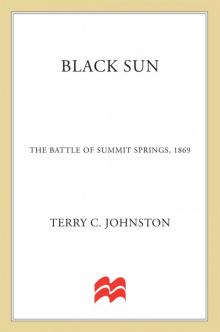 Black Sun, The Battle of Summit Springs, 1869
Black Sun, The Battle of Summit Springs, 1869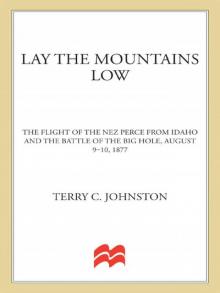 Lay the Mountains Low
Lay the Mountains Low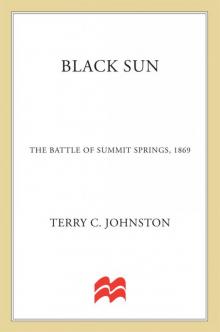 Black Sun: The Battle of Summit Springs, 1869 (The Plainsmen Series)
Black Sun: The Battle of Summit Springs, 1869 (The Plainsmen Series)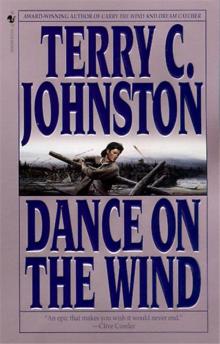 Dance on the Wind tb-1
Dance on the Wind tb-1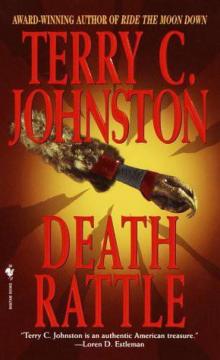 Death Rattle tb-8
Death Rattle tb-8 The Stalkers
The Stalkers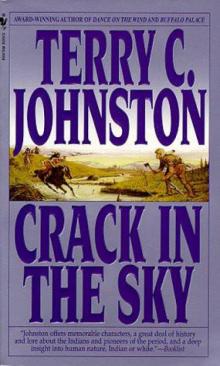 Crack in the Sky tb-3
Crack in the Sky tb-3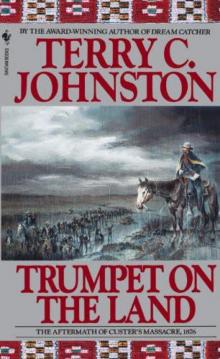 Trumpet on the Land: The Aftermath of Custer's Massacre, 1876 tp-10
Trumpet on the Land: The Aftermath of Custer's Massacre, 1876 tp-10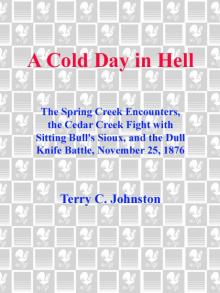 A Cold Day in Hell
A Cold Day in Hell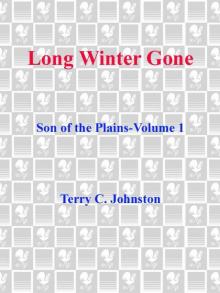 Long Winter Gone: Son of the Plains - Volume 1
Long Winter Gone: Son of the Plains - Volume 1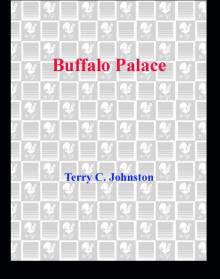 Buffalo Palace
Buffalo Palace Cries from the Earth
Cries from the Earth Death Rattle
Death Rattle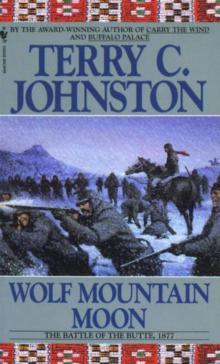 Wolf Mountain Moon: The Battle of the Butte, 1877 tp-12
Wolf Mountain Moon: The Battle of the Butte, 1877 tp-12 Crack in the Sky
Crack in the Sky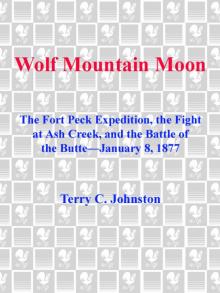 Wolf Mountain Moon
Wolf Mountain Moon Turn the Stars Upside Down: The Last Days and Tragic Death of Crazy Horse
Turn the Stars Upside Down: The Last Days and Tragic Death of Crazy Horse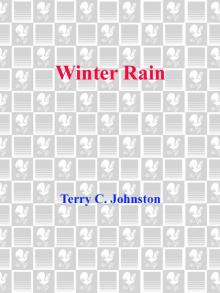 Winter Rain
Winter Rain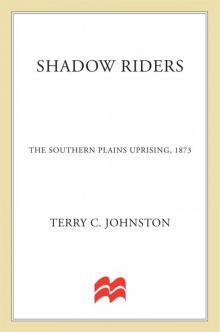 Shadow Riders: The Southern Plains Uprising, 1873 (The Plainsmen Series)
Shadow Riders: The Southern Plains Uprising, 1873 (The Plainsmen Series)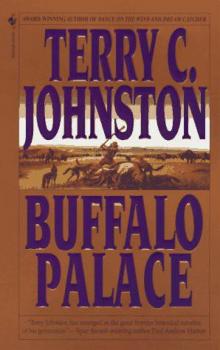 Buffalo Palace tb-2
Buffalo Palace tb-2 Cries from the Earth: The Outbreak Of the Nez Perce War and the Battle of White Bird Canyon June 17, 1877 (The Plainsmen Series)
Cries from the Earth: The Outbreak Of the Nez Perce War and the Battle of White Bird Canyon June 17, 1877 (The Plainsmen Series)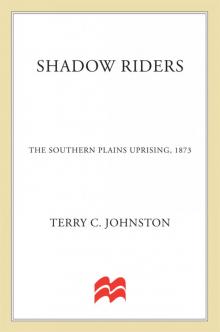 Shadow Riders, The Southern Plains Uprising, 1873
Shadow Riders, The Southern Plains Uprising, 1873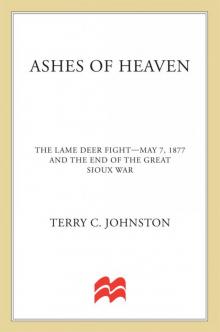 Ashes of Heaven (The Plainsmen Series)
Ashes of Heaven (The Plainsmen Series)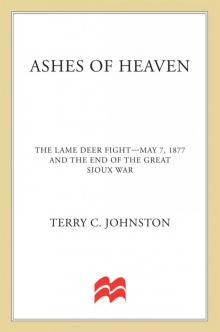 Ashes of Heaven
Ashes of Heaven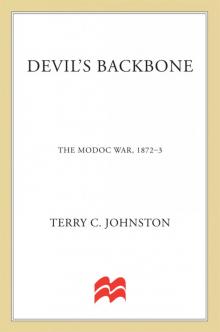 Devil's Backbone: The Modoc War, 1872-3
Devil's Backbone: The Modoc War, 1872-3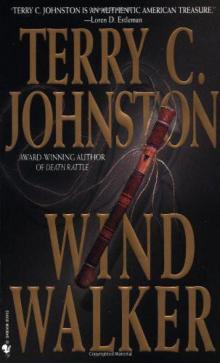 Wind Walker tb-9
Wind Walker tb-9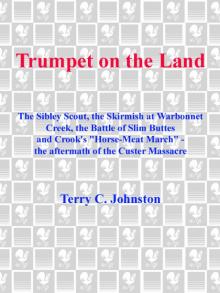 Trumpet on the Land
Trumpet on the Land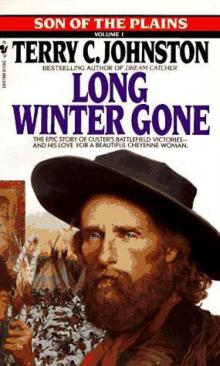 Long Winter Gone sotp-1
Long Winter Gone sotp-1 Dying Thunder
Dying Thunder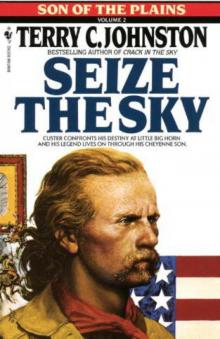 Seize the Sky sotp-2
Seize the Sky sotp-2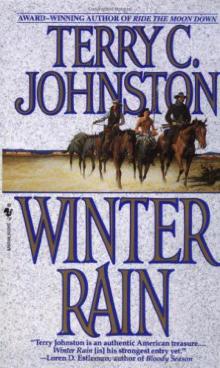 Winter Rain jh-2
Winter Rain jh-2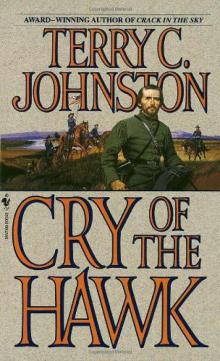 Cry of the Hawk jh-1
Cry of the Hawk jh-1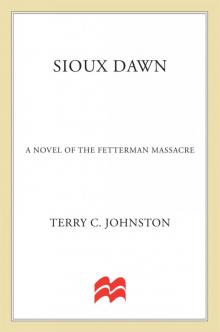 Sioux Dawn, The Fetterman Massacre, 1866
Sioux Dawn, The Fetterman Massacre, 1866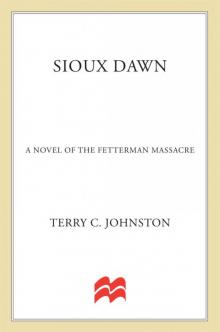 Sioux Dawn: The Fetterman Massacre, 1866 (The Plainsmen Series)
Sioux Dawn: The Fetterman Massacre, 1866 (The Plainsmen Series)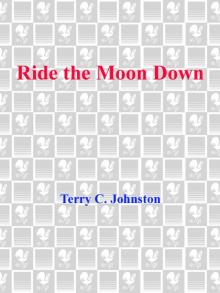 Ride the Moon Down
Ride the Moon Down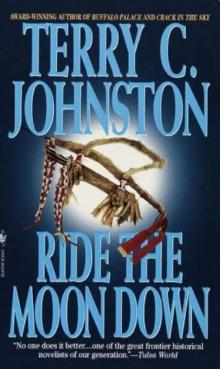 Ride the Moon Down tb-7
Ride the Moon Down tb-7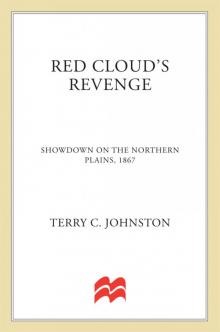 Red Cloud's Revenge
Red Cloud's Revenge Wind Walker
Wind Walker